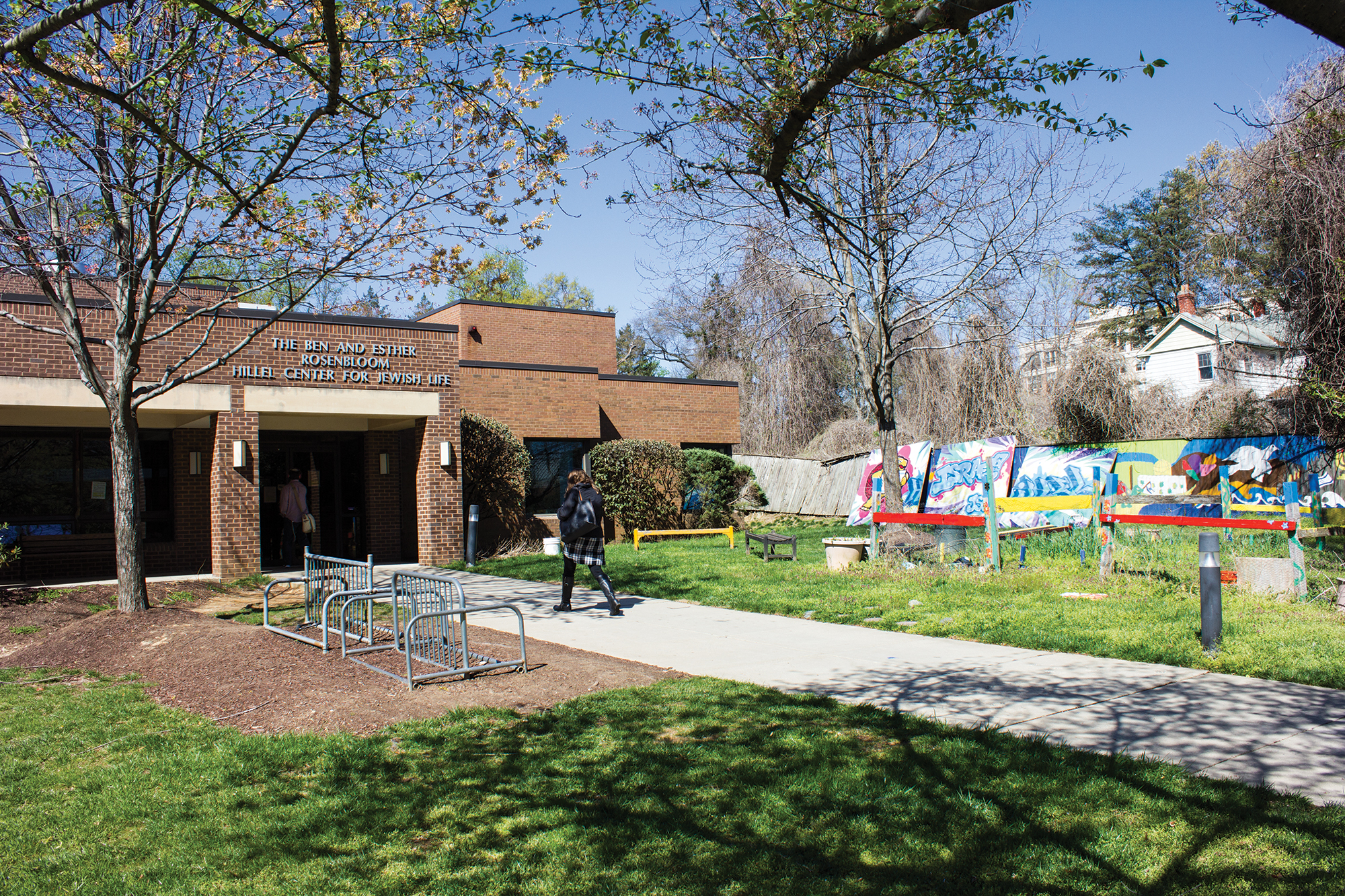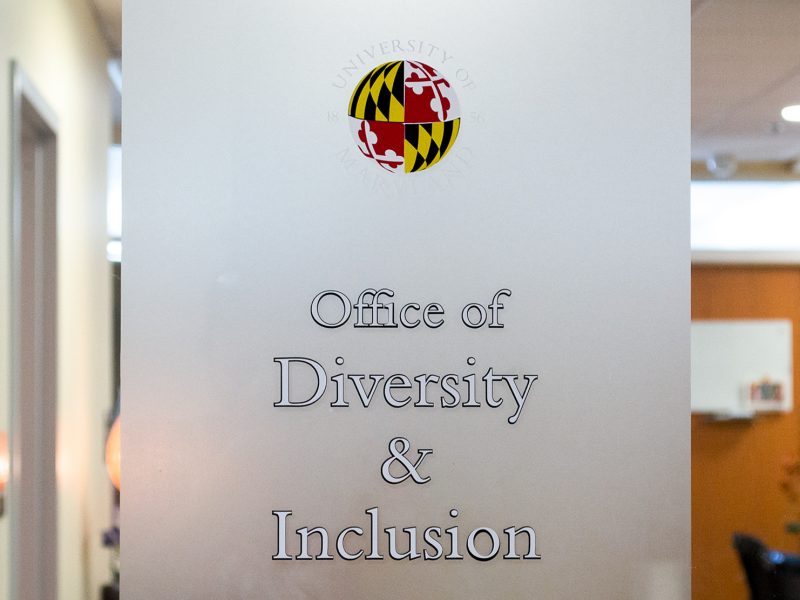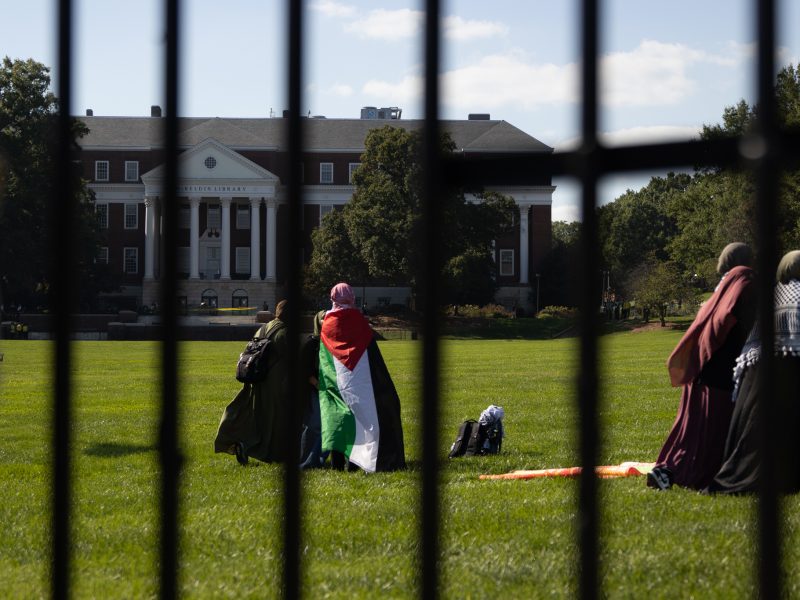In the midst of midterm season, University of Maryland students are trying to study for exams in addition to their assignments. And many Jewish students have to juggle religious holidays as well.
Jewish university community members have observed two out of three of the largest Jewish holidays in the past two weeks — Rosh Hashanah last week and Yom Kippur on Wednesday. Yom Kippur is considered the most holy day in the Jewish religion, and for many this means not being able to eat, drink or use technology for 24 hours.
Some of the almost 6,000 Jewish students attending this university chose to not attend classes at their discretion because of the holiday, said Rabbi Ari Israel, Hillel’s executive director.
“The traditional response … fasting and doing work like writing, taking tests, etc., is prohibited,” Israel said. “Non-traditional Jews may just fast and then go to class. Every individual sort of makes that choice.”
While the attendance policy doesn’t allow exams to be given on the holidays that the university recognizes, including Rosh Hashanah and Yom Kippur, it happens on occasion due to oversight that can happen when syllabi are created, Israel said.
“Overall the accommodation works. There are individual experiences where it’s more difficult, but those are really the exceptions, not the rule,” he said.
Elizabeth Beise, the associate provost for academic planning and programs, wrote in an email that the religious holiday policies follow the University System of Maryland Policy. Additionally, there is a grievance system where students can appeal a professor’s decision if they feel it violates the policy.
“Both policies were recently reviewed and revised by the University Senate last spring,” she wrote. “I’m not aware of any conversations about changing the academic calendar to accommodate additional religious holidays, Jewish, Christian, Muslim, Hindu, or otherwise.”
While the system might work academically, Israel said, it can still be difficult for students — particularly freshmen — to be away from home for the holidays.
“Hillel provides all the services available for students: prayer services, food, classes and celebration opportunities to enable students to celebrate the holiday as best possible on campus,” he said. “It’s not home. … We try to create a warm environment, but it’s definitely not grandma’s Matzo Ball soup.”
Being at home would be ideal for most students, but the university’s policy doesn’t take travel time into consideration for out-of-state students.
Sophomore mathematics major Rachel Goldfinger, who is from New Jersey, said she wasn’t able to go home for the holidays because she had to attend classes on the days before and after them. In addition to classes, she had several midterms last week and this week, so she said she felt obligated to stay.
“Ideally I wouldn’t have to have exams or homework due, but at the same time I understand that they can’t plan the whole semester around these two weeks,” she said. “It is what it is, even though a lot of religions get off for holidays, not just that day but for weeks around it.”
Anna Melnick, a sophomore psychology major, also hasn’t able to go home for holidays either of the years she has been here, although the change in routine wasn’t too drastic for her, she said.
“Since I’m not super, super Jewish, it wasn’t really that weird,” Melnick said. “I was fine being on campus, but if I had the opportunity to go home and we had off of school, then I probably would have.”
Senior information systems major Adrienne Baer said the current policy prevents her from going home to celebrate holidays with her congregation in Pennsylvania, and a lot of the times she hasn’t been able to celebrate here because the holidays fall on days of classes that would be too important to miss.
“I just generally think that with such a large Jewish population here at Maryland that we should have the day off so that we aren’t stressed about having to choose between religious observances and missing things in class or feeling like you’re falling behind,” Baer said.
Israel, however, said the current policies were fair in terms of the support and accommodation that the faculty and professors provide, and that giving students a day off isn’t necessary.
“We are a sizeable minority … but we are not a Jewish university,” Israel said, “and this is part of what it means to be part of the American society. At the same time, I’m going to hope that every Jewish student should have the ability to celebrate to the best of their ability.”



